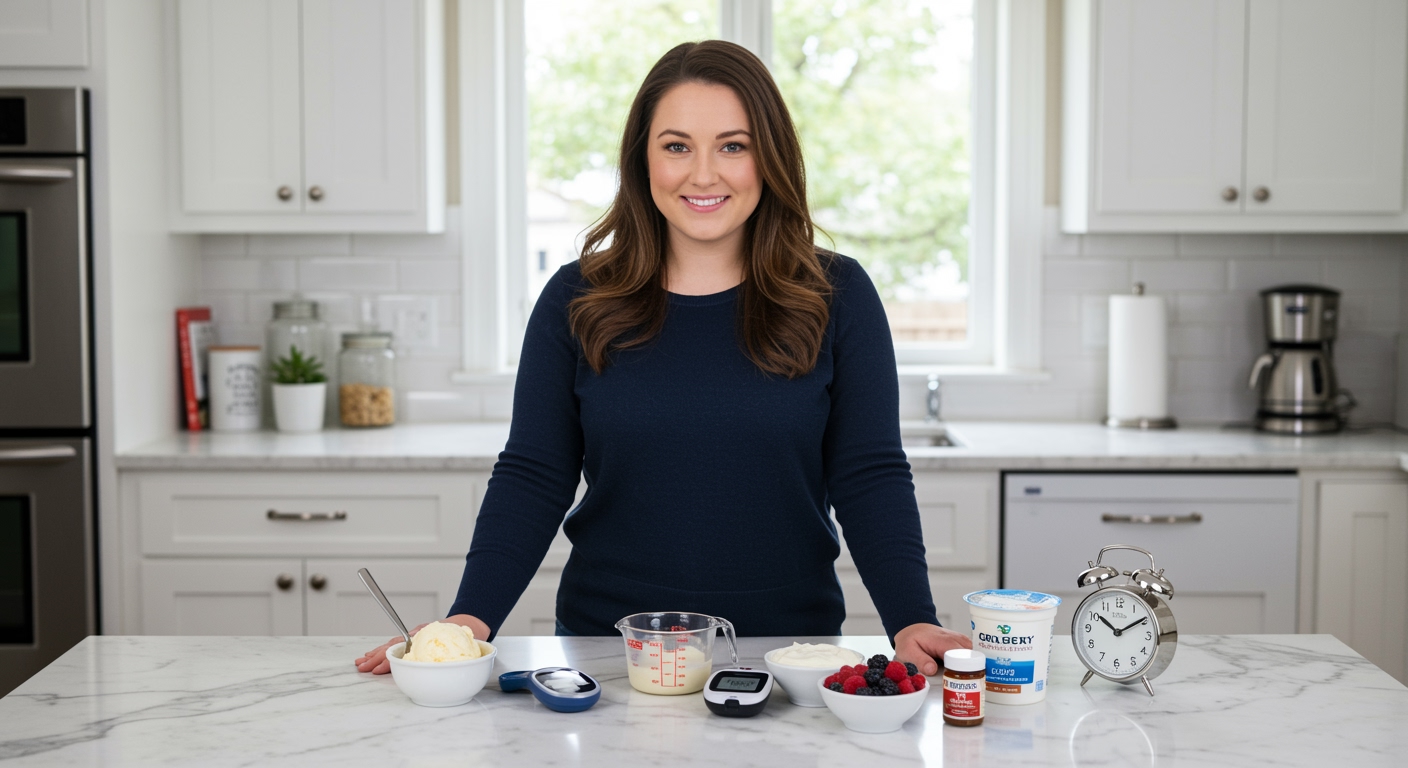✪ Key Takeaway: Cheese is not always bad for PCOS – certain types like aged varieties and goat cheese can be beneficial when consumed mindfully.
Introduction
You walk down the dairy aisle and feel confused about whether that block of cheese will help or hurt your PCOS symptoms.
Many women with PCOS wonder if they need to eliminate cheese completely from their diet because they have heard conflicting advice about dairy and hormonal health.
Hi, I am Abdur, your nutrition coach and today I am going to explain the complex relationship between cheese and PCOS so you can make informed decisions about dairy in your diet.
Does Cheese Actually Worsen PCOS Symptoms?
The relationship between cheese and PCOS is not as simple as good or bad because different types of cheese affect your body in completely different ways.
Some cheeses contain high levels of insulin-like growth factor (IGF-1) which can worsen insulin resistance and increase androgen production in women with PCOS.
Fresh cheeses like mozzarella and ricotta tend to have higher IGF-1 levels compared to aged varieties because the aging process breaks down these growth factors.
Processed cheese products often contain added hormones and preservatives that can disrupt your endocrine system and trigger inflammatory responses.
However, certain aged cheeses like cheddar, gouda, and parmesan have lower IGF-1 levels and may actually provide beneficial nutrients without worsening PCOS symptoms.
The key lies in understanding which specific types of cheese support your hormonal balance rather than avoiding all dairy products completely.
✪ Pro Tip: Choose aged cheeses over fresh varieties to minimize IGF-1 exposure while still enjoying dairy products.
Which Types Of Cheese Are Better For PCOS?
Aged cheeses like sharp cheddar, aged gouda, and parmesan are generally better choices for women with PCOS because they contain lower levels of problematic compounds.
The aging process naturally reduces IGF-1 content while increasing beneficial compounds like conjugated linoleic acid (CLA) which may help improve insulin sensitivity.
Goat cheese and sheep cheese are often better tolerated than cow dairy because they have different protein structures that are easier to digest.
These alternative dairy sources also tend to come from animals that are less likely to receive synthetic hormones compared to conventional cow dairy operations.
Organic and grass-fed cheese varieties provide higher levels of omega-3 fatty acids and vitamin K2 which support hormonal balance and reduce inflammation.
Hard cheeses like pecorino romano and aged manchego offer concentrated nutrition with smaller serving sizes needed to satisfy your taste preferences.
✪ Fact: Aged cheeses naturally contain less lactose, making them easier to digest for people with dairy sensitivities.
What About Cottage Cheese And Cream Cheese?
Cottage cheese presents a mixed picture for PCOS because it is high in protein but also contains higher levels of IGF-1 compared to aged varieties.
The high protein content can help stabilize blood sugar levels and promote satiety, which are both beneficial for managing insulin resistance.
However, the fresh nature of cottage cheese means it retains more of the potentially problematic growth factors that can worsen PCOS symptoms.
Cream cheese is generally not recommended for women with PCOS because it is highly processed and contains minimal nutritional value beyond calories and saturated fat.
The high caloric density of cream cheese can contribute to weight gain, which worsens insulin resistance and increases androgen production.
If you choose to include cottage cheese in your diet, opt for organic varieties and consume them in moderation while monitoring your individual response.
✪ Note: Greek yogurt often provides similar protein benefits to cottage cheese with potentially fewer hormonal disruptions.
How Much Cheese Is Safe For PCOS?
Portion control becomes crucial when including cheese in a PCOS-friendly diet because even beneficial varieties can cause problems when consumed in excessive amounts.
A reasonable serving size is typically one ounce of hard cheese or about the size of your thumb, which provides adequate nutrition without overwhelming your system.
Consuming cheese 2-3 times per week rather than daily allows your body to process the dairy proteins and fats without creating chronic inflammatory responses.
Pay attention to how your body responds to different amounts and types of cheese by tracking symptoms like bloating, acne flares, or changes in menstrual patterns.
Some women with PCOS can tolerate moderate amounts of quality cheese while others may need to eliminate dairy completely based on their individual sensitivity levels.
The key is finding your personal threshold through careful experimentation and working with a healthcare provider who understands PCOS management.
✪ Pro Tip: Keep a food and symptom diary to identify your personal tolerance level for different cheese varieties.
Should You Try A Dairy Elimination Diet?
A temporary elimination diet can help you determine whether dairy products are contributing to your PCOS symptoms or if you can include certain types safely.
Remove all dairy products including cheese for 4-6 weeks while monitoring changes in your energy levels, skin condition, and menstrual regularity.
After the elimination period, slowly reintroduce different types of cheese one at a time to identify which varieties your body tolerates best.
Start with small amounts of aged cheeses first since they are generally better tolerated than fresh varieties by women with PCOS.
Document any changes in symptoms like acne, bloating, mood swings, or irregular periods as you reintroduce different dairy products.
This systematic approach helps you create a personalized plan that maximizes nutrition while minimizing hormonal disruption from dairy consumption.
✪ Fact: Many women discover they can tolerate small amounts of high-quality aged cheese even if they react poorly to milk or yogurt.
The Bottom Line
Cheese is not universally bad for PCOS, but the type, quality, and amount you consume makes all the difference in how it affects your hormonal health.
The best nutrition plan is one that works specifically for your body, not one that follows rigid rules without considering individual responses.
I would love to hear about your experiences with dairy and PCOS in the comments below – share what types of cheese work for you or any questions you have about creating your personalized approach.
References
At NutritionCrown, we use quality and credible sources to ensure our content is accurate and trustworthy. Below are the sources referenced in writing this article:
- PMC: Dairy intake and acne vulgaris: A systematic review
- Claire Pettitt: Do I have to go dairy free for PCOS?
- PCOS Nutrition: Dairy and PCOS
- PMC: Milk consumption and acne in teenaged boys





